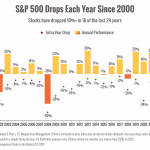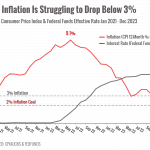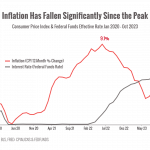Staying the course pays off for investors
Time heals financial wounds: Holding stocks for 20 years can turn bad returns to good
- Historical data compiled by Oppenheimer show that stocks have not suffered an average annualized loss in a 20-year holding period (measured in rolling monthly periods) since 1950.
- “Historical evidence suggests that longer investment horizons typically produce better results,” says Oppenheimer’s chief investment strategist Brian Belski.
- “The lesson here is: Chill, stay invested, stay disciplined and be diversified,” Belski said.
- Much of individual investors’ lagging performance is blamed on psychological factors. More often than not, they buy high and sell low rather than the classic winning strategy of buy low and sell high. Put another way, they sell the dips, rather than buy the dips.
- “Fear,” Harvey said, often prompts investors to bail out of stocks after prices have fallen far and the worst of the decline is over. They make matters worse “by delaying getting back in” early enough to participate in the eventual recovery.
- A key reason why investors who stay the course end up doing well is the fact that stocks go up roughly two-thirds of the time.
Read more in this article:

Staying the course pays off for investors | FLORIDA TODAY | floridatoday.comhttp://www.floridatoday.comThe long term used to mean three-, five- or 10-year holding periods for stock investors looking to wring out risk and boost their odds of making money. Then came the 2000s, dubbed the Lost Decade, when the U.S. stock market posted negative returns in a decade for the first time since the 1930s.







